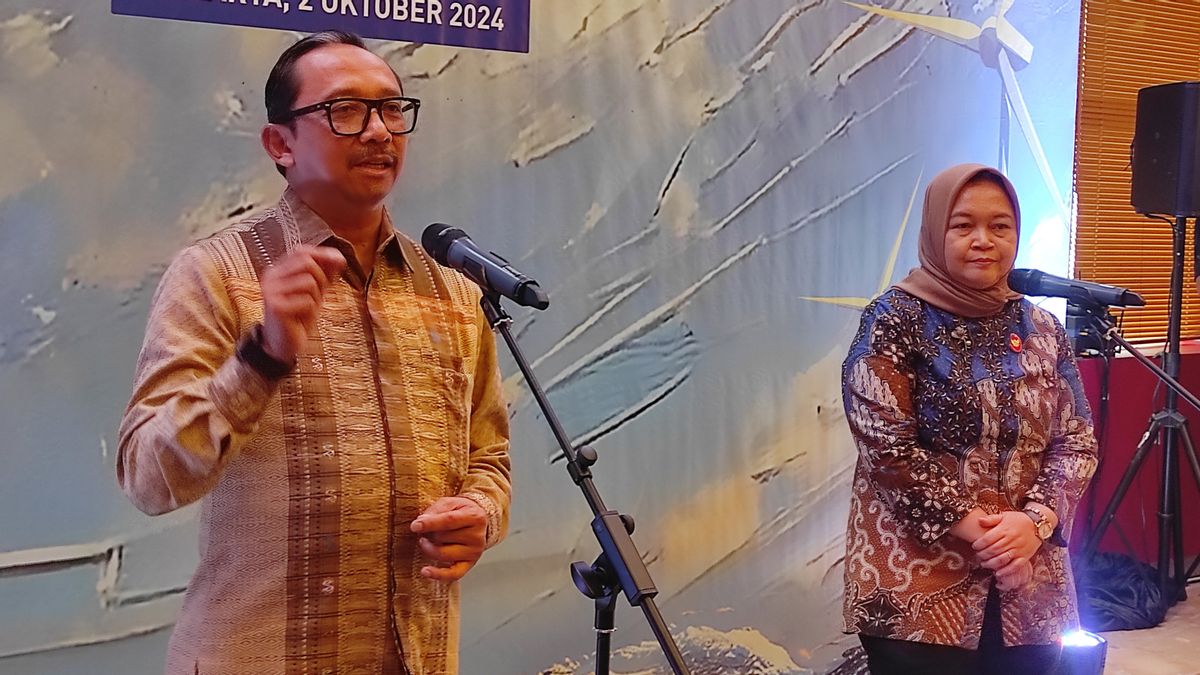JAKARTA - Bank Indonesia (BI) launched the book Financial Stability Study (KSK) No. 43, Edition September 2024 with the theme Maintain Resilience, Continuate Momentum Growth.
BI Deputy Governor Juda Agung said that the launch of the KSK book was carried out every semester and this was the 43rd to provide an early warning system to any financial sector that could be prepared in the face of global and domestic uncertainty.
"We launch this Financial Stability Study every semester. The goal is to give an early warning to the financial sector, to players in the financial industry, what risks we face and how we respond to existing risks," he said in the launch of financial stability study book No. 43 and a green calculator, Wednesday, October 2.
Juda said, there are several risks that can affect Indonesia's Financial System Stability (SSK), the first that will be faced comes from global conditions which can take advantage of a loose global financial cycle to get productive financing.
"Because in the years ahead, of course, the need for economic financing will continue to grow," he said.
Furthermore, the second risk stems from the development of financial digitization where there are cybercrimes such as hacking, malware, ransomware, and phishing.
"Which then poses a security risk for customer data and trust in the integrity of our financial system," he said.
Juda added that there was an increase in the risk of fraud in the use of digital platforms such as identity theft, fake transactions, data manipulation, online gambling, and several other online frauds.
Therefore, Juda said that his party continues to strengthen the detection system against fraud in the financial sector by utilizing artificial intelligence or artificial intelligence to detect fraud practices.
There are certain patterns that we can observe using AI. For example, buying chicken porridge, buying chicken porridge in the middle of the night a thousand times the same amount. That's clearly something that needs to be suspected. Anomaly, so we detect so on. That's one example, there are many," he said.
In addition, Juda is also wary of the operational risks posed by third-party services providing critical technology because the financial sector infrastructure relies on many technology providers that have the potential to pose risks in the financial system.
According to Juda, the next challenge is climate change where these impacts not only cause natural disasters, but also lead to transitional risks.
Such as the decline in the value of fossil energy-based assets. Or the difficulty of funding due to 'brown' business activities [unfriendly]," he said.
Bank Indonesia, said Juda, will continue its accommodative macroprudential policy and provide space for financing, as well as strengthening synergies to support sustainable economic growth, while maintaining financial system resilience.
In addition, a loose macroprudential policy will still be taken to support credit acceleration or financing to the business world and households while still paying attention to the principle of prudence.
Then, the macroprudential policy mix is continued through various instruments in accordance with optimal credit/financing targets, financial system resilience, and inclusive and green finance.
SEE ALSO:
As an inseparable part of the macroprudential policy mix, Bank Indonesia also continues to carry out indirect supervision (surveillance) and thematic direct supervision (examination) to ensure the implementation and implementation of macroprudential policies.
Bank Indonesia will continue to coordinate and synergize with the authorities in the financial sector in order to increase the effectiveness of policies to support financial system stability and sustainable economic growth.
The English, Chinese, Japanese, Arabic, and French versions are automatically generated by the AI. So there may still be inaccuracies in translating, please always see Indonesian as our main language. (system supported by DigitalSiber.id)

















